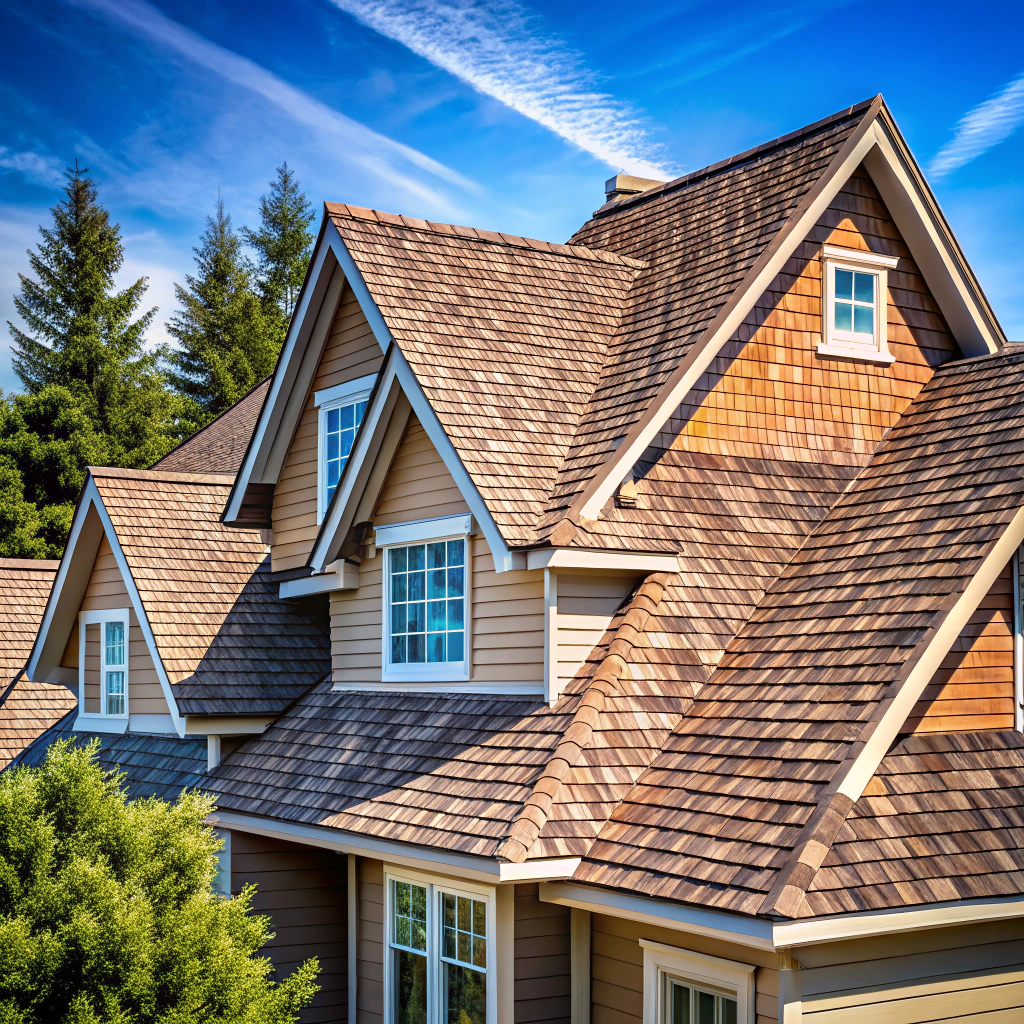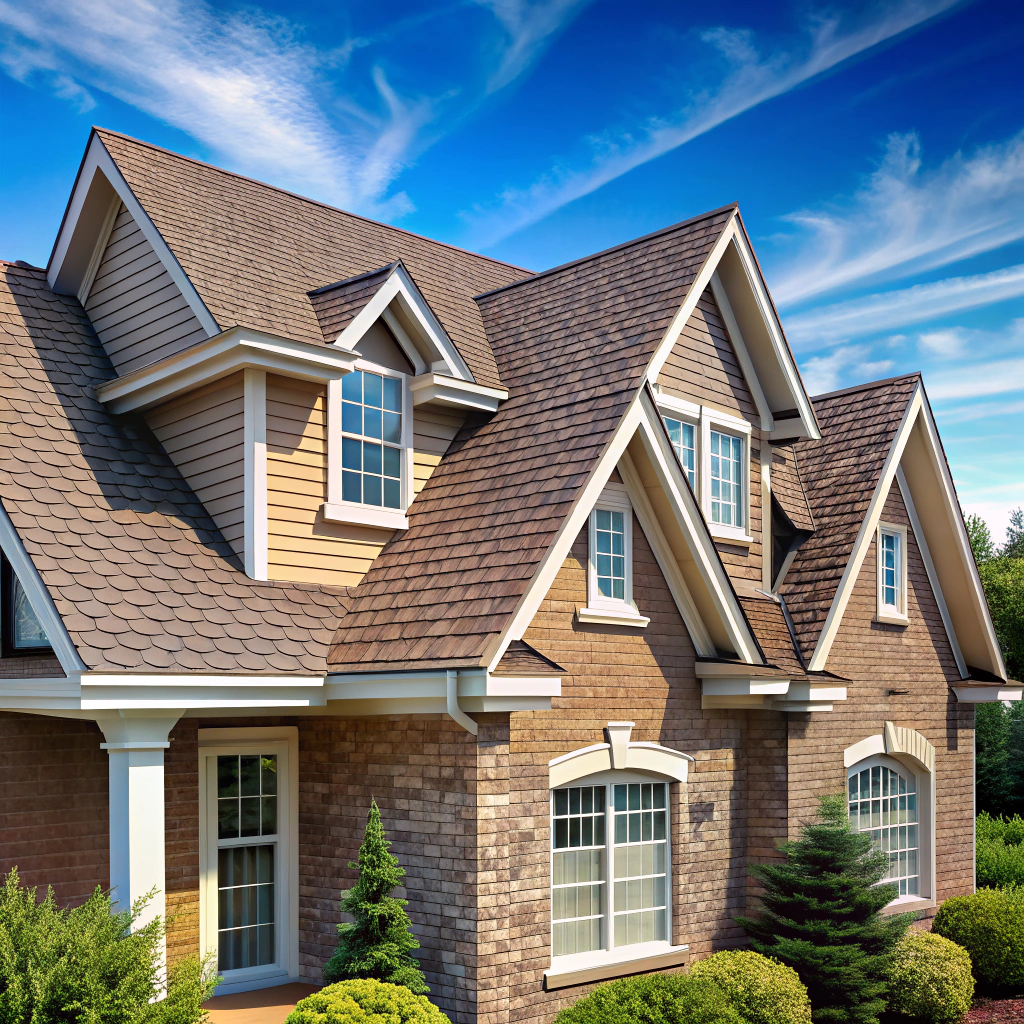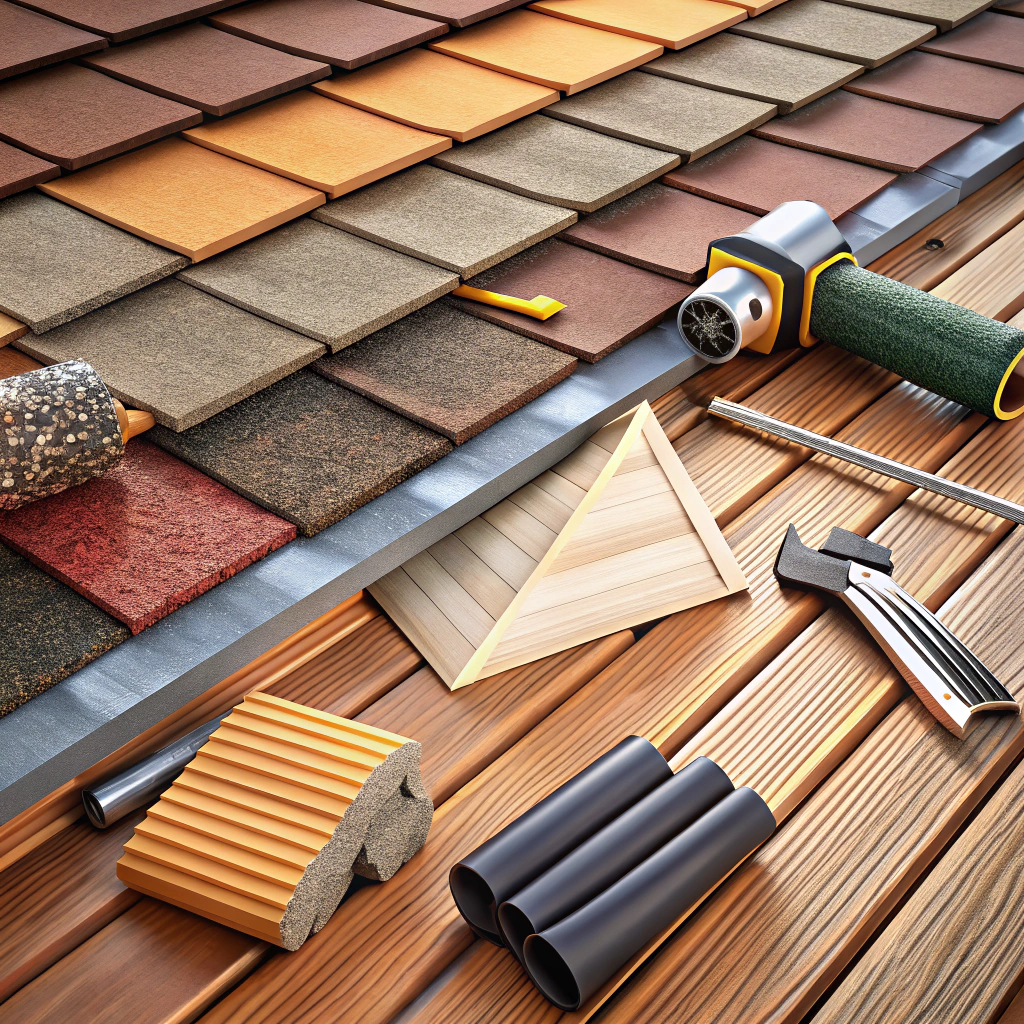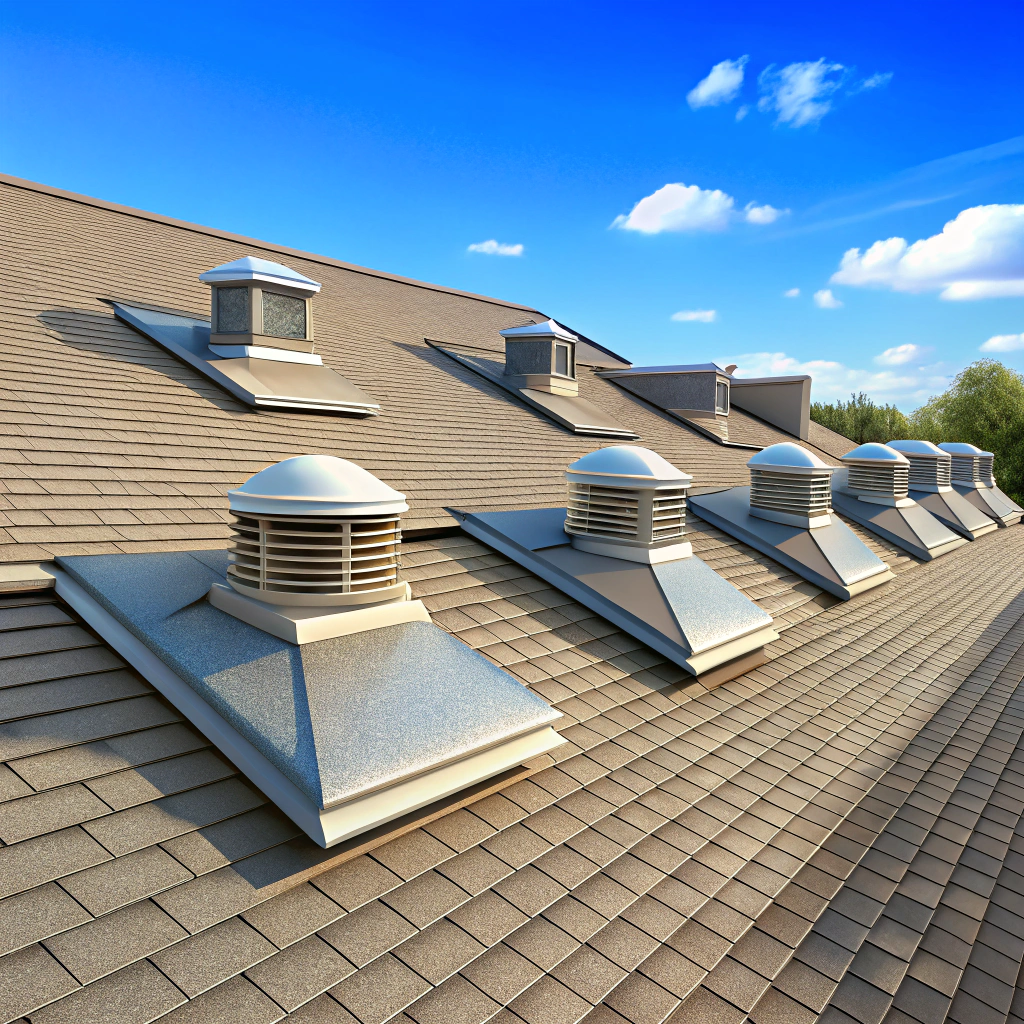Last updated on
Discover the factors that determine the cost of a new roof in New Jersey and how to budget for this essential home improvement project.
Are you a homeowner in New Jersey wondering how much it would cost to replace your old, worn-out roof? Well, you’re not alone. Many homeowners face the same question every day.
The cost of a new roof can vary depending on several factors, such as the size of your home, the type of roofing material you choose, and the complexity of the installation process. In this article, we’ll dive into these factors and provide you with an estimate for how much a new roof may cost in NJ.
So sit back and read on to learn more!
Factors Affecting Roof Cost
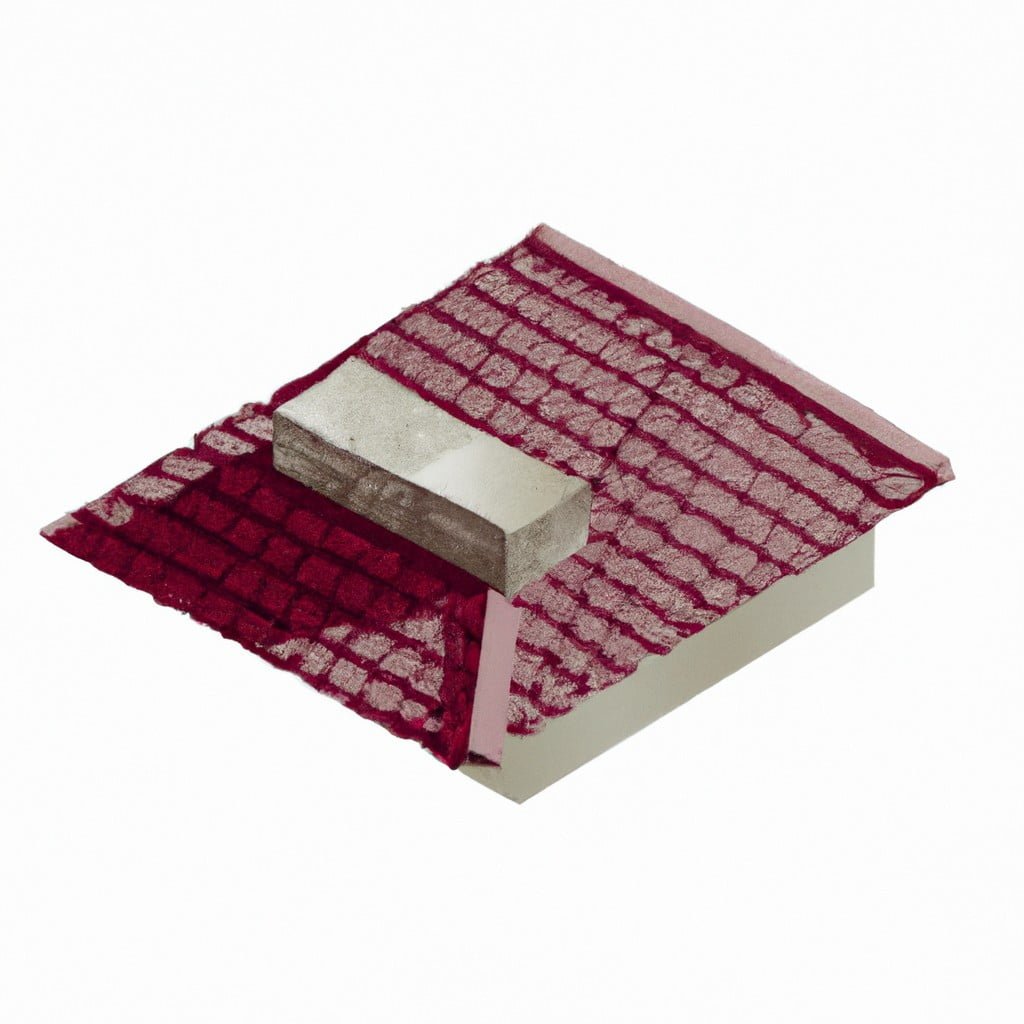
The size and pitch of your roof, the type of roofing material you choose, and the complexity of the installation process are some key factors that affect how much you’ll pay for a new roof.
Roof Size and Pitch: The larger your home’s footprint or square footage is, the more materials will be required to cover it. If your home has a steeply pitched roof with multiple levels or dormers that require additional labor to install properly, this will also increase costs.
Types Of Roofing Materials: Different types of roofing materials have different price points. Asphalt shingles are generally less expensive than metal roofs or slate tiles but may not last as long as these other options.
Labor Costs In New Jersey: Labor costs can vary depending on where you live in NJ. Some areas may have higher labor rates due to demand for skilled workers while others may offer lower rates due to competition among contractors.
Permit And Inspection Fees: Depending on where you live in NJ, there may be permit fees associated with installing a new roof. Local building codes often require inspections during various stages of construction which could add additional expenses.
Roof Size and Pitch
The larger your roof, the more materials you’ll need to cover it, which means higher costs. If you have a steeply pitched or complex-shaped roof, it will require more labor and time to install properly.
To calculate your roofing area accurately, measure both length and width in feet for each plane on the house’s exterior (including overhangs). Multiply these two numbers together to get square footage per plane.
Add up all planes’ square footage for an estimate of total roofing area.
Pitch refers to how steeply sloped a roof is from its highest point down towards its lowest edge. A steeper pitch requires additional safety equipment such as harnesses or scaffolding during installation because workers must climb higher off ground level than with flatter roofs.
In general terms:
- Low-pitched roofs (2/12 – 4/12) are easier and quicker to install but may not be suitable for areas with heavy snowfall.
- Medium-pitched roofs (5/12 – 9/12) are common in many homes but require extra care when walking on them.
- High-pitched roofs (10/12 or greater) offer better ventilation options but can be challenging and dangerous during installation due to their height.
Types of Roofing Materials
Each material has its unique features and benefits that make them suitable for different types of homes and climates. Some popular roofing materials include asphalt shingles, metal roofs, tile roofs, wood shake roofs, slate roofs and flat roof systems.
Asphalt shingles are the most commonly used roofing material in New Jersey due to their affordability and durability. They come in a variety of colors and styles that can mimic other high-end materials like wood or slate.
Metal roofing is another popular option because it’s long-lasting (up to 50 years) with minimal maintenance required. It’s also energy-efficient as it reflects sunlight instead of absorbing heat into your home.
Tile roofing is known for its aesthetic appeal as well as durability but can be expensive compared to other options on this list.
Wood shake offers a natural look but requires more maintenance than other types of roofings such as regular cleaning or treating against mold growths which makes them less common nowadays due to environmental concerns about deforestation practices associated with harvesting cedar shakes from old-growth forests.
Slate is one of the most durable choices out there; however they’re heavy so not all homes may support their weight without additional structural reinforcement which adds up cost-wise.
Asphalt Shingles Pricing
They are affordable, durable, and come in various colors and styles to match any home’s design. The cost of asphalt shingles can vary depending on the quality of materials used, but generally speaking, they are one of the most budget-friendly options available.
The average cost per square foot for asphalt shingle installation ranges from $3 to $5. This means that if you have a 2,000 square foot roof (which is about average), you can expect to pay between $6,000 and $10,000 for your new roof.
It’s important to note that while asphalt shingles may be cheaper than other roofing materials upfront; they may not last as long or provide as much protection against extreme weather conditions such as hailstorms or hurricanes. However with proper maintenance like regular cleaning & inspection by professionals every few years will help extend their lifespan.
Metal Roofing Costs
It’s also one of the more expensive options on the market. The cost of metal roofing can vary depending on several factors such as the type of metal used (copper, aluminum or steel), style and finish.
On average, you can expect to pay between $7-$12 per square foot for a new metal roof installation in NJ. This price range includes both materials and labor costs but does not include any additional fees such as permit costs or tear-off expenses.
While this may seem like a significant investment upfront compared to other types of roofs like asphalt shingles or wood shakes; it’s important to consider that metal roofs have an incredibly long lifespan – up to 50 years with proper care! they are highly resistant against harsh weather conditions including wind damage from hurricanes which is common in coastal areas like New Jersey.
Tile Roofing Expenses
It’s also one of the most expensive roofing materials available. The cost of tile roofing can vary depending on several factors such as the type of tiles you choose, their quality, and installation complexity.
Concrete tiles are more affordable than clay tiles but still offer excellent durability and longevity. They come in various colors and styles that mimic natural stone or wood shakes.
Clay tiles are more expensive than concrete ones but have a unique look that adds value to your home. They’re made from natural materials which make them eco-friendly while providing superior insulation against heat transfer.
The installation process for tile roofs is complex compared to other types of roofs because they require special underlayment material before installing the actual roof covering itself; this increases labor costs significantly.
If you’re considering investing in a tile roof for your NJ home, expect to pay between $10-$20 per square foot installed (including labor).
Wood Shake Roof Prices
They can be more expensive than other roofing materials due to the cost of the wood and installation process. The price of wood shakes varies depending on several factors such as quality, thickness, and treatment.
The average cost per square foot for cedar shake roofing in New Jersey ranges from $6-$12. This means that if you have an average-sized roof of 2,000 square feet with cedar shakes installed at $8 per square foot; it would cost around $16k.
It’s important to note that while wood shake roofs may be more expensive upfront compared to other materials like asphalt shingles or metal roofing; they tend to last longer when properly maintained. Some insurance companies offer discounts on homeowner policies for having fire-resistant treated wooden roofs installed.
Slate Roof Costs
It’s also one of the most expensive roofing materials on the market. The cost of slate roofing can range from $15 to $30 per square foot, making it significantly more expensive than other options like asphalt shingles or metal roofs.
The high cost of slate roofing is due to several factors. First, slate is a natural stone that must be quarried and transported from remote locations, which adds to its production costs.
Installing a slate roof requires specialized skills and tools that not all contractors possess.
Despite its high price tag, many homeowners choose slate because it can last up to 100 years with proper maintenance – far longer than other types of roofs. Slate also has excellent fire resistance properties and provides superior insulation against heat loss during winter months.
If you’re considering installing a new roof made out of natural stone slates in NJ but are concerned about the upfront costs involved; there are some ways you may be able reduce your expenses without sacrificing quality or longevity:
- Consider using synthetic slates instead: Synthetic slates mimic the look and feel of real ones but come at lower prices.
- Shop around for quotes: Get multiple estimates from different contractors before settling on one.
- Choose standard-sized tiles: Custom-cutting tiles will add extra labor charges
- Optimize installation timing: Schedule your installation during off-seasons when demand (and therefore pricing) tends to drop
Flat Roofing Options
They offer a sleek, minimalist look that complements contemporary architecture. However, flat roofing requires specialized materials and installation techniques to ensure proper drainage and prevent leaks.
There are several options available for flat roofing in New Jersey, including built-up roofs (BUR), modified bitumen (MB), single-ply membranes such as TPO or PVC, EPDM rubber membrane systems or spray foam insulation.
Built-up roofs consist of multiple layers of asphalt-impregnated felt paper bonded together with hot tar or asphalt. This type of roof is durable but heavy and requires regular maintenance to prevent water damage.
Modified bitumen is similar to BUR but uses polymer-modified asphalt instead of traditional tar. It offers better flexibility than BUR while still providing excellent durability against harsh weather conditions.
Single-ply membranes come in various types like TPO which stands for Thermoplastic Olefin; it’s an energy-efficient material that reflects sunlight away from the building reducing cooling costs during summer months. PVC – Polyvinyl Chloride – another thermoplastic material known for its strength & durability EPDM Rubber Membrane Systems: Ethylene Propylene Diene Monomer – this synthetic rubber has been used on low-slope residential & commercial applications since the 1960s.
Spray foam insulation can be applied directly onto your existing roof surface creating an insulated barrier between your home’s interior space & outside elements while also serving as waterproofing protection.
Labor Costs in New Jersey
In New Jersey, labor rates can vary depending on several factors such as location, experience level of the roofing contractor and complexity of the job. On average, homeowners can expect to pay between $3 to $7 per square foot for labor costs alone.
It’s important to note that some roofing contractors may charge more or less than this range based on their expertise and reputation in the industry. It’s always recommended that you get multiple quotes from different contractors before making your final decision.
It’s essential to choose a licensed and insured contractor who has experience working with your chosen roofing material. This will ensure that they have proper training and knowledge required for installing your new roof correctly.
While it may be tempting to go with an inexperienced or unlicensed roofer who offers lower prices than established companies, doing so could end up costing you more money down the line if mistakes are made during installation or repairs needed due to poor workmanship.
Permit and Inspection Fees
In New Jersey, you’ll need a building permit before starting any roofing work. The cost of this permit varies depending on your location but typically ranges from $100 to $400.
You’ll need an inspection after the installation is complete to ensure that everything was done correctly and up to code. This inspection fee can range from $50-$200 or more depending on where you live.
It’s important not to skip these steps as they are required by law in most areas of NJ. Failure to obtain proper permits or pass inspections could result in fines or even legal action against you as the homeowner.
To avoid any issues with permits and inspections, make sure that your roofing contractor is licensed and insured in New Jersey. They should be familiar with local regulations regarding building codes so that they can help guide you through this process smoothly.
Cost to Tear Off and Replace Roof
The cost of tearing off an existing roof can vary depending on several factors such as the size of your home, type of roofing material, and accessibility. In New Jersey, you can expect to pay between $100-$150 per square foot for tear-off costs alone.
The cost to replace a roof varies based on many factors like materials used in construction or labor rates charged by contractors. However, it’s important not to skimp on this step because if any part is left behind during removal or installation process it could lead to leaks down the line.
It’s essential that you hire experienced professionals who will ensure that all debris is properly disposed of and your property remains clean throughout the process.
Roofing Warranties
Most roofing materials come with manufacturer warranties that cover defects and premature failure of the product. However, these warranties vary depending on the type of material and brand you choose.
For example, asphalt shingles typically have a 20-30 year warranty while metal roofs can last up to 50 years or more. It’s important to read through your warranty carefully and understand what is covered under normal wear and tear versus damage caused by severe weather conditions.
Some roofing contractors offer workmanship warranties for their installation services. These types of guarantees ensure that if there are any issues related to improper installation or workmanship errors during the project’s completion phase, they will be fixed at no additional cost.
Insurance Considerations
In some cases, your homeowner’s insurance policy may cover all or part of the cost of replacing your roof if it was damaged by a covered event such as hail or windstorm. However, you’ll need to check with your insurer to determine what is and isn’t covered under your policy.
It’s also worth noting that filing an insurance claim for a new roof can be complicated and time-consuming. You’ll need to provide documentation such as photos and estimates from roofing contractors before the insurer will approve any repairs or replacements.
Keep in mind that making too many claims on your homeowner’s insurance can lead to higher premiums down the line. So while it may be tempting to file a claim for every little issue with your home, consider whether it makes financial sense in the long run.
Understanding how insurance factors into the cost of a new roof is crucial when budgeting for this essential home improvement project.
DIY Vs. Professional Installation
While DIY installation can be a cost-effective option for some home improvement projects, roofing is not one of them.
Roofing requires specialized skills and equipment that most homeowners do not possess. A professional roofing contractor has the experience and knowledge necessary to ensure that your new roof is installed correctly and safely.
Hiring a professional roofer can actually save you money in the long run by preventing costly mistakes or damage caused by improper installation.
If you’re considering DIY installation as an option for your new roof, it’s important to weigh the risks versus rewards carefully before making any decisions.
How to Choose a Roofing Contractor
Here are some tips on how to choose a reliable and trustworthy roofing contractor in New Jersey:
1. Look for local contractors: Local contractors have a reputation to uphold in their community, so they are more likely to provide quality workmanship.
2. Check credentials: Make sure the contractor you choose has proper licensing, insurance, and certifications.
3. Read reviews: Check online reviews from previous customers or ask for references from the contractor.
4. Get multiple quotes: Compare quotes from different contractors before making a decision.
5. Ask about warranties: A reputable roofing company should offer warranties on both materials and labor.
6. Communication skills matter too! Choose someone who communicates well with you throughout every step of the process – this ensures transparency which can help avoid misunderstandings later down the line!
Financing Your New Roof
Fortunately, there are several financing options available that can help you pay for your new roof over time.
One option is to take out a home equity loan or line of credit. These loans allow you to borrow against the equity in your home and typically have lower interest rates than other types of loans.
Another option is to apply for a personal loan from a bank or online lender. Personal loans usually have higher interest rates than home equity loans but may be easier to qualify for if you don’t have much equity in your home.
Some roofing contractors also offer financing options through third-party lenders. Be sure to read the terms carefully before signing up for any financing program, as some may come with high-interest rates or hidden fees.
When considering financing options, make sure that the monthly payments fit within your budget and won’t cause financial strain down the road.
Energy Efficiency and Tax Credits
A well-insulated roof can keep your home cool in summer and warm in winter, reducing the need for heating or air conditioning. This translates to lower energy consumption and costs over time.
Moreover, installing an energy-efficient roof may qualify you for tax credits under federal programs such as Energy Star or LEED certification. These incentives are designed to encourage homeowners to invest in eco-friendly roofing materials that reduce their carbon footprint while saving money on utility bills.
Before embarking on your roofing project, consult with a professional contractor who specializes in green roofs and sustainable building practices. They will guide you through the process of selecting environmentally friendly materials that meet local building codes while maximizing your savings potential through tax credits and rebates offered by state agencies or utility companies.
Investing in an energy-efficient new roof not only adds value to your home but also helps protect our planet’s natural resources while saving you money over time!
Maintaining Your New Roof
Regular maintenance can help you identify potential issues before they become major problems, saving you time and money in the long run. Some simple steps that homeowners can take to maintain their roofs include cleaning gutters regularly, trimming overhanging branches, removing debris from the roof surface, inspecting for damage after severe weather events such as storms or heavy snowfall.
It’s also important to schedule regular professional inspections of your roof by a licensed roofing contractor. They will be able to identify any signs of wear and tear on shingles or other roofing materials that may need repair or replacement.
In addition to regular maintenance checks, it’s crucial not to neglect any necessary repairs promptly. Ignoring small leaks or damaged shingles could lead to more significant problems down the road if left unaddressed.
By following these simple tips for maintaining your new roof in NJ properly, you’ll be able not only extend its lifespan but also save yourself from costly repairs later on!
FAQ
How much does a new roof cost in NJ per square foot?
A new roof in NJ costs between $3.50 and $14 per square foot.
How often do you need to replace a roof in NJ?
In New Jersey, a roof with architectural shingles needs replacement every 25-30 years, while one with standard three-tab asphalt shingles requires replacement every 12-20 years.
What is the life expectancy of a roof in NJ?
The life expectancy of a roof in NJ is typically 25 to 30 years or more, with some major roofing manufacturers offering warranties up to 50 years or even lifetime warranties for as long as you own your home.
What is the best season to replace a roof in NJ?
The best season to replace a roof in New Jersey is fall, due to its mild temperatures and relatively dry conditions.
What are the most common roofing materials used in NJ and their respective costs?
The most common roofing materials used in NJ are asphalt shingles, costing $3.50 to $5.50 per square foot, and metal roofing, running between $7.50 to $12.00 per square foot.
Are there any specific regulations or permits required for roof replacement in NJ?
In NJ, roof replacement typically requires obtaining a permit from the local municipality or a building department before starting the project.
How can homeowners find reliable roofing contractors in NJ for their roof replacement project?
Homeowners can find reliable roofing contractors in NJ for their roof replacement project by searching online, checking customer reviews, and verifying credentials and experience.
